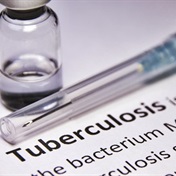Tuesday will mark World Tuberculosis Day and, in Mpumalanga, the picture is grim.
Statistics released by the provincial health department reveal that TB infections nearly doubled between 2004 and 2007, from 10 631 in 2004 to 20 021 in 2007.
Seventy percent of the cases affected sexually-active people between the ages of 25 and 55, raising concern that government is failing to provide integrated testing for both HIV and tuberculosis (TB) at anti-retroviral clinics.
"Look at the 25 to 55 age group's rate of infection. These are the people who are sexually active and most at risk of contracting HIV. We have always said that there must be integrated services for TB and HIV treatment in our health centres, but this hasn't been done yet," said co-ordinator of the Mpumalanga Treatment Action Campaign (TAC) Bheki Khoza.
Both TB and HIV to be tested
The national health department recognised the need to test for both TB and HIV at health centres in 2006 and issued a directive to provincial health departments to do so.
Khoza said this hadn't been implemented properly in Mpumalanga because the provincial department didn't have a working strategy in place.
Nelspruit general practitioner Dr Eric Khumalo, who used to work in the Rob Ferreira hospital's HIV clinic in Nelspruit, confirmed that there were ARV sites in the province that didn't test for both HIV and TB.
"TB and HIV go hand-in-hand and government should make sure that testing for the two is integrated," said Khumalo.
Healthcare workers need to be retrained
He stressed that healthcare workers need to be retrained to use new methods of diagnosing TB.
"There are still nurses who use sputum to diagnose TB. However, some of the patients don't have sputum but still have a persistent cough. They are misdiagnosed and end up dying," said Khumalo.
He recommends that Mpumalanga develop a working relationship with the Swaziland and Mozambique governments to prevent cross-border infection.
'Province had improved TB treatment'
Provincial health spokesperson Mpho Gabashane said despite what the statistics revealed, dual testing was happening at health facilities in the province.He said the province had improved TB treatment over the past three years.
"This is partly due to the focusing of resources, both financial and human resource, in this area of work. This has resulted in a gradual improvement in the management of TB in the province," said Gabashane.
The provincial TB cure rate for new cases has improved from 42% in 2004 to 56% in 2006.
He said the TB defaulter rate for people who fail to complete their six-month treatment remains high at 11%. The death rate also remains high at 10%.
Interrupted treatment causes MDR
"Poor adherence to prescribed medication and interrupted treatment of TB not only fail to cure TB but often result in multidrug-resistant (MDR) strains which require long and more complex treatment," he said.
Gabashane said it was important that communities knew that treatment for TB is free at all public health facilities. – (Sydney Masinga/African Eye News, March 2009)
Read more:
Drug-resistant TB an uphill battle
Half of XDR-TB patients die




 Publications
Publications
 Partners
Partners














